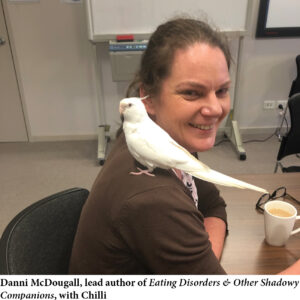 Posted: 01/01/2025
Posted: 01/01/2025
Every step we take follows another. Every step we take precedes another. The smallest shifts—doing some dishes, putting something away, stopping something, starting something, taking a shower—can all be significant events on a continuum of ‘next steps’, representing our unique pathways through life. ‘A …Read more
 Posted: 17/01/2024
Posted: 17/01/2024
When children return to school after the holidays, the playground is often abuzz with stories about road trips to visit grandparents, movies with friends, hanging out at the pool, bike rides, camping with family, conquering of computer games, shopping trips, BBQs or just mooching …Read more
 Posted: 25/01/2022
Posted: 25/01/2022
The importance of self-care Even the most experienced and skilled professionals can feel overwhelmed and heartbroken when hearing people’s stories of trauma and loss. When you work in a role that involves supporting other people—like social work, teaching, healthcare, childcare or counselling—self-care is fundamentally …Read more
 Posted: 12/10/2021
Posted: 12/10/2021
Given that both trauma and learning difficulties can have significant impacts on a child’s outcomes in later life, it is important to know how to recognise them in order to provide appropriate support. What we often don’t talk about is that trauma and learning …Read more
 Posted: 28/05/2021
Posted: 28/05/2021
Why are LGBTQI+ resources are needed? Because everyone deserves respect. We share spaces with people whose ideas, beliefs and stories differ from our own. Our interests, languages, bodies and styles are many and varied, and this rich diversity is reflected in our experiences of …Read more
 Posted: 10/02/2021
Posted: 10/02/2021
Despite kids having access to loads of apps and digital games, they still seem to love stickers. Stickers are fun, versatile and tactile. They are also portable so you can take them anywhere, making them easy to whip out to do a quick activity …Read more
 Posted: 10/02/2021
Posted: 10/02/2021
Over the hols, we spent some time with author of the Tell A Trusted Adult cards, Sharon Hynes (pictured on right), talking about the evolution of the cards and how she and Katerina Meda, the illustrator (pictured on left), came to be working together. …Read more
 Posted: 10/02/2021
Posted: 10/02/2021
Young people’s lives are in a constant state of flux. They are dealing with growth spurts, the unnerving appearance of body hair in odd places, the making and breaking of relationships, changing schools, hormones, brain restructuring (yep, there are a lot of upgrades happening …Read more
 Posted: 04/05/2020
Posted: 04/05/2020
When you are already managing a mental health issue, the additional stress of social isolation can be particularly tricky to navigate. As we launch the new digital version of the Eating Disorders & Other Shadowy Companions, we thought it was worth spending some time …Read more
 Posted: 22/01/2020
Posted: 22/01/2020
In many workplaces across Australia, many of the conversations in the lunch room are about bushfires and related topics (like the impact of climate change and how we feel about government responses). While Australia manages this most recent manifestation of climate change, these issues …Read more
 Posted: 22/01/2020
Posted: 22/01/2020
In this article we talk to student counsellor, Jack Bornyan, about how he used The Nature of Strengths cards in his work with a secondary student. Jack is currently completing a Bachelor of Counselling and is on placement at a secondary college in Frankston, …Read more
Posted: 13/05/2019
As a social worker, I have been taught I need to practise self-care as this will assist me to continue to help others. Whilst I agree that self-care does have this function, I feel like the self gets lost in this explanation since the …Read more
 Posted: 15/04/2019
Posted: 15/04/2019
Those who choose to work in human services are often well-equipped, not only to do their jobs, but to do their jobs well. Those in leadership roles endeavour to provide them with frameworks, procedures, infrastructure, leadership, professional development, teams and resources intended to support …Read more
 Posted: 15/02/2019
Posted: 15/02/2019
In our work, regardless of the industry, we often find ourselves being pulled one way and another … both at the same time. How do we look after ourselves so that we don’t ‘snap’ in half? Maybe it’s about balance. Whilst looking through the …Read more
 Posted: 23/01/2019
Posted: 23/01/2019
‘While our so-called “panic hormones” are part of our self-defence mechanism and are therefore to be celebrated, a few skills to “unpanic ourselves” and decompress are also crucial to have in our bag of tricks.’ When you think of a meerkat, what image comes …Read more
 Posted: 23/01/2019
Posted: 23/01/2019
At this time of year we are often asked, ‘What is your New Year’s resolution?’ And, you know, that can often make us think that we have to change something, or that we need to ‘fix’ something about ourselves. I have chosen to believe …Read more
 Posted: 14/12/2018
Posted: 14/12/2018
For many people, Christmas is a time of family and fun. For others, it is a time of loneliness and loss. Do you ever think that everyone except you will be part of a rosy family group gathering around a perfectly basted turkey on …Read more
 Posted: 26/10/2018
Posted: 26/10/2018
Our body signals are the gateway to recognising, interpreting and managing our feelings. That is why Body Intelligence (BQ) is such a fundamental aspect of developing Emotional Intelligence (EQ). There are times when each of us, no matter how skilled we may be, has …Read more
 Posted: 26/09/2018
Posted: 26/09/2018
For many of us, anxiety sucks. It feels unpleasant, it’s uneasy, uncomfortable and sometimes scary. It comes in so many different forms and no two people will experience it in the same way. Sometimes, it comes in different forms, at different times, and in different situations, for …Read more
Posted: 26/09/2018
The research into the psychology of optimism is based on studies into a condition called ‘learned helplessness’. Psychologists and other researchers have discovered that people or animals show changes in behaviour when they decide they can do nothing to improve or change a situation they find themselves in. These changes include lowered …Read more



















